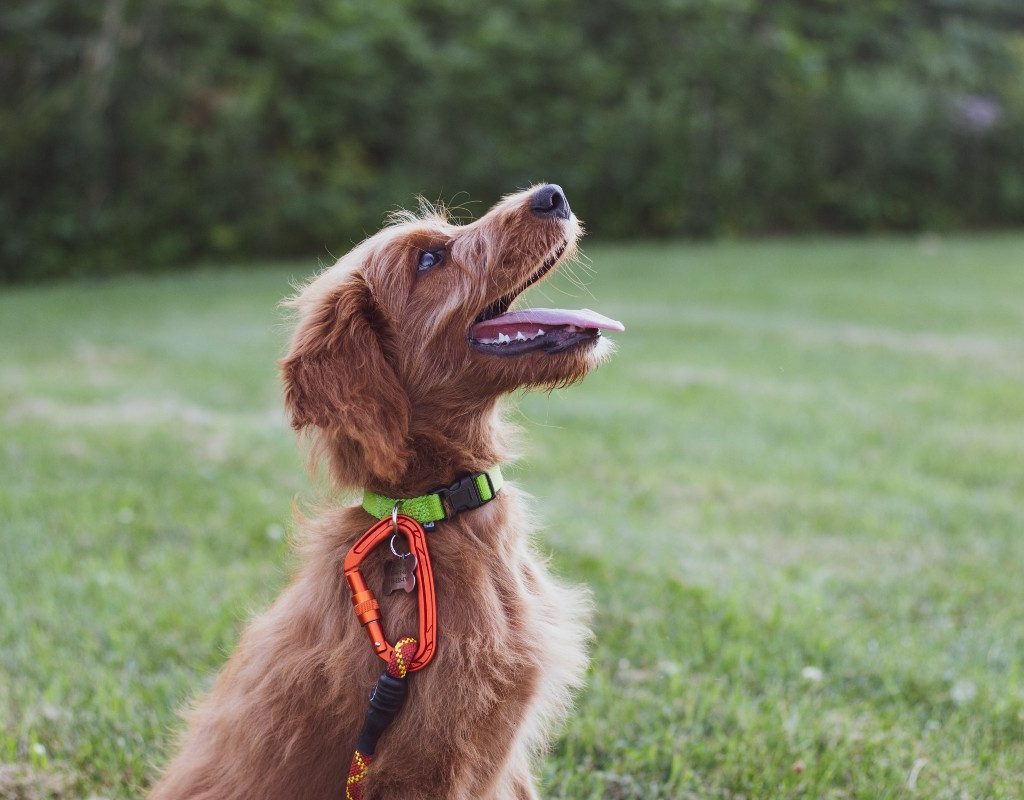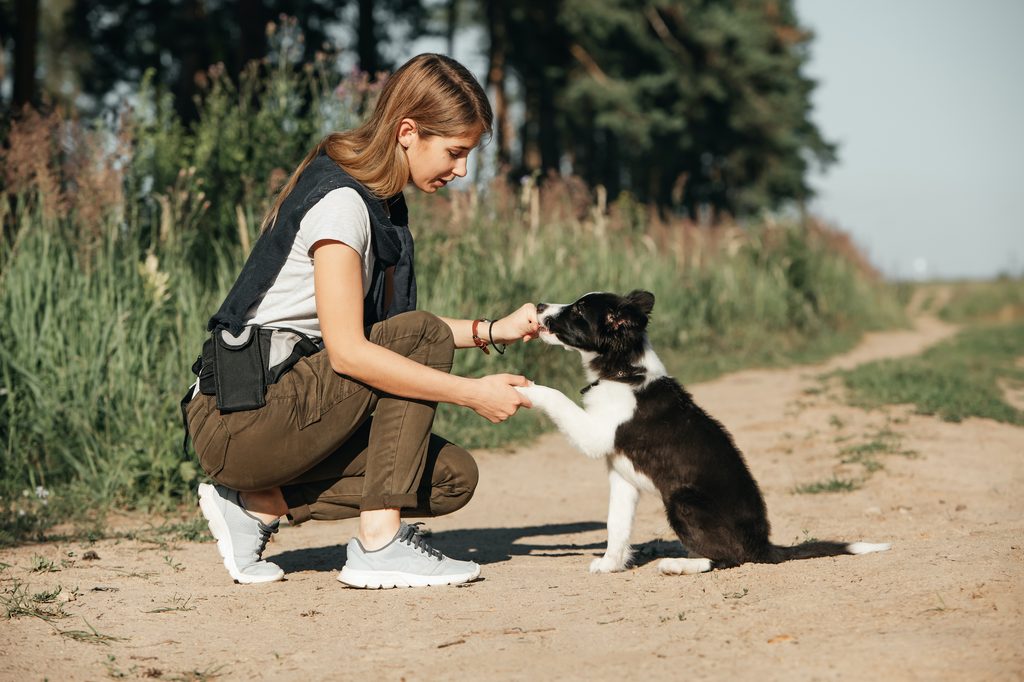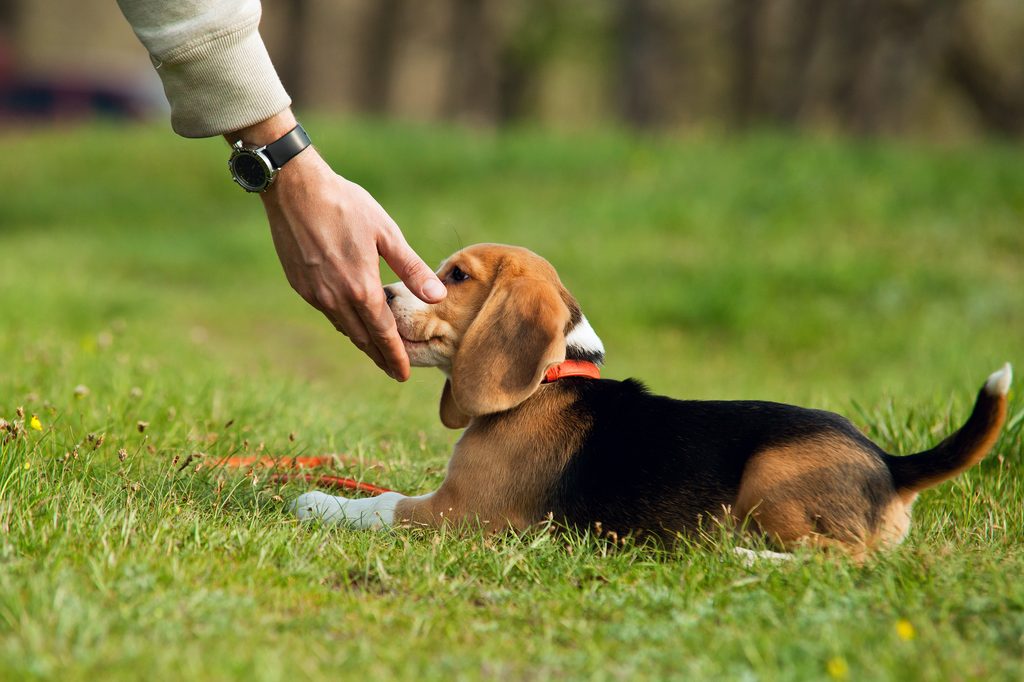Maybe this is a hot take, but cheese could truly be its own food group. It can be enjoyed any time of day — in breakfast omelets, sandwiches, and salads, and there’s nothing like a heaping plate of Mac ’n cheese on a cold winter’s day. It can be an appetizer, snack, or the entire meal. In some cultures, it’s common to have cheese as a dessert!
It’s fun to include our dogs in our meals, but not all our favorite foods are healthy for our pets. For example, another popular dessert food, chocolate, is a no-no for dogs. Other people foods, such as apples and some berries, are fine — and even healthy for dogs — in moderation. But can dogs eat cheese?
The short answer is yes. However, there is some essential information to keep in mind. Here’s the 4-1-1 on two of life’s greatest pleasures: dogs and cheese.
Is cheese bad for dogs?

Cheese is generally healthy for dogs. That said, there are some drawbacks to feeding your canine friend cheese. The two biggest issues are some cheeses’ high fat and sodium content. A high-fat diet can lead to canine obesity and pancreatitis. Too much salt can cause stomach aches and dehydration.
Straight cheese is healthy, but check the ingredients label. If it’s mixed with other ingredients that are toxic to dogs, such as garlic or onions, steer clear.
Finally, in rare cases, dogs can be lactose intolerant. If your dog is, even a small piece of cheese can upset their stomach.
What are the health benefits of giving my dog cheese?

Though dogs get all the nutrients they need from a food with a seal from the Association of American Feed Control Officials (AAFCO), cheese does boast some health benefits for dogs:
Cheese is packed with nutrients, including:
- Calcium, which helps with bone health
- Protein to keep muscles strong
- Vitamin A, which aids in bone health and immune function
Some pets also need to take pills daily or if health issues arise. Not all dogs like the taste of their medication, though. Hiding it in a piece of cheese can coax them into taking their pill, which ultimately helps them lead healthier lives. That’s a win-win!
How to serve cheese to your dog

Before you let your dog help themselves to the cheese on your charcuterie board, keep these serving tips in mind.
- Pick a low-fat, low-sodium option. Cottage cheese and mozzarella cheese have less fat and sodium than other popular options, such as goat cheese and feta.
- Think small. You may be able to eat an entire cheese plate by yourself, but you’ll want to start with small pieces if it’s your dog’s first time having this treat. Rip off a tiny bit.
- Size always matters. Larger dogs may be able to have one small slice, but small and toy ones need smaller portions to prevent weight gain and GI upset. Use a teeny, tiny piece. Remember, their tummies are small.
- Everything in moderation. At least 90% of your dog’s daily calorie intake should come from regular food. Limit treats to 10%.
- Consider mixing with food. Encourage your pet to eat their regular food by mixing small bits of cheese in it.
- Use it for training. Cheese can replace regular dog treats during training — just remember the 90-10 rule.
How do I know if cheese isn’t right for my dog?

If your dog is lactose intolerant, overweight, or has pancreatitis, speak with their vet before giving them cheese. Cheese may not be best for your dog if you notice adverse reactions, such as diarrhea, vomiting, or lethargy, after giving them cheese. Pull back on feeding your dog cheese if you notice they stop eating their regular food.
Can dogs be lactose intolerant?

Parents of dogs who don’t react well to cheese may wonder whether they’re lactose intolerant. They could be! Even though puppies can digest lactose easily (they need to digest their mother’s milk, after all), many dogs develop lactose intolerance after starting solid foods. No breed is more or less likely to develop lactose intolerance in adulthood, so the only way you’d find out is through a bad experience with milk or cheese.
Luckily, dairy is not an essential part of the canine diet, so your dog isn’t missing out on much if they don’t tolerate it well. True, cheese can be delicious, but your dog will be even more excited for a bite of chicken or meat. Even tossing a dog treat their way will get their tail wagging
If you love cheese or your pet ate some you dropped on the floor, you may wonder: Can dogs eat cheese? Is cheese bad for dogs? In most cases, it’s safe for dogs to eat cheese. Cheese has calcium and protein, which support muscle health, though it’s unnecessary for your dog to consume it to reap these benefits. Their dog food has everything your pet needs to thrive and should make up 90% of their diet.
That said, cheese can be a great treat. It may help with training, or make medication or regular food more palatable. Opt for low-fat, low-sodium options, and stop giving your dog cheese if they experience GI problems like vomiting after eating it. Dogs with lactose intolerance or pancreatitis should steer clear. Always consult with your vet first.




